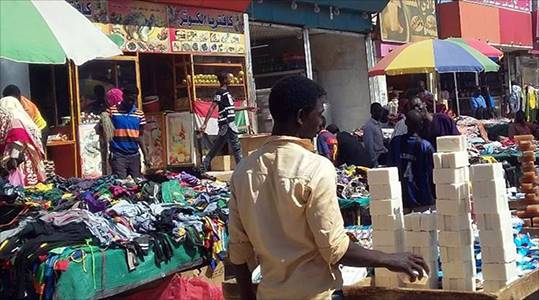Sudan's inflation rate rose to about 99% in April, compared to 82% in the previous month due to the persistently high food prices.
According to the Central Bureau of Statistics, the annual change rate (inflation) in April was 98.81%, compared to 81.64% in March, an increase of 17.17%. It attributed the high rate of inflation to the continued increase in food prices, such as oils, grains, meat, legumes, milk, and bread.
The Sudanese have been struggling for months to get bread, auto fuel, and household gas, as outlets for these goods are witnessing long lines.
Since the separation of South Sudan from Sudan in 2011, the country’s economy has witnessed a rise in inflation rates and depreciation of the pound, due to the loss of large oil revenues. In late 2018, protests erupted in the city of Atbara, as a result of the increase in bread prices by the authorities. The protests soon expanded to cover all parts of the country, with urgent demands to topple former President Omar al-Bashir, which the military responded to on April 11, 2019.
The country also suffers from high external debt, which, according to International Monetary Fund data, reached about $60 billion.
In February, the World Food Program announced that more than nine million Sudanese need humanitarian assistance.
Source (Al-Sharq Al-Awsat newspaper, Edited)

